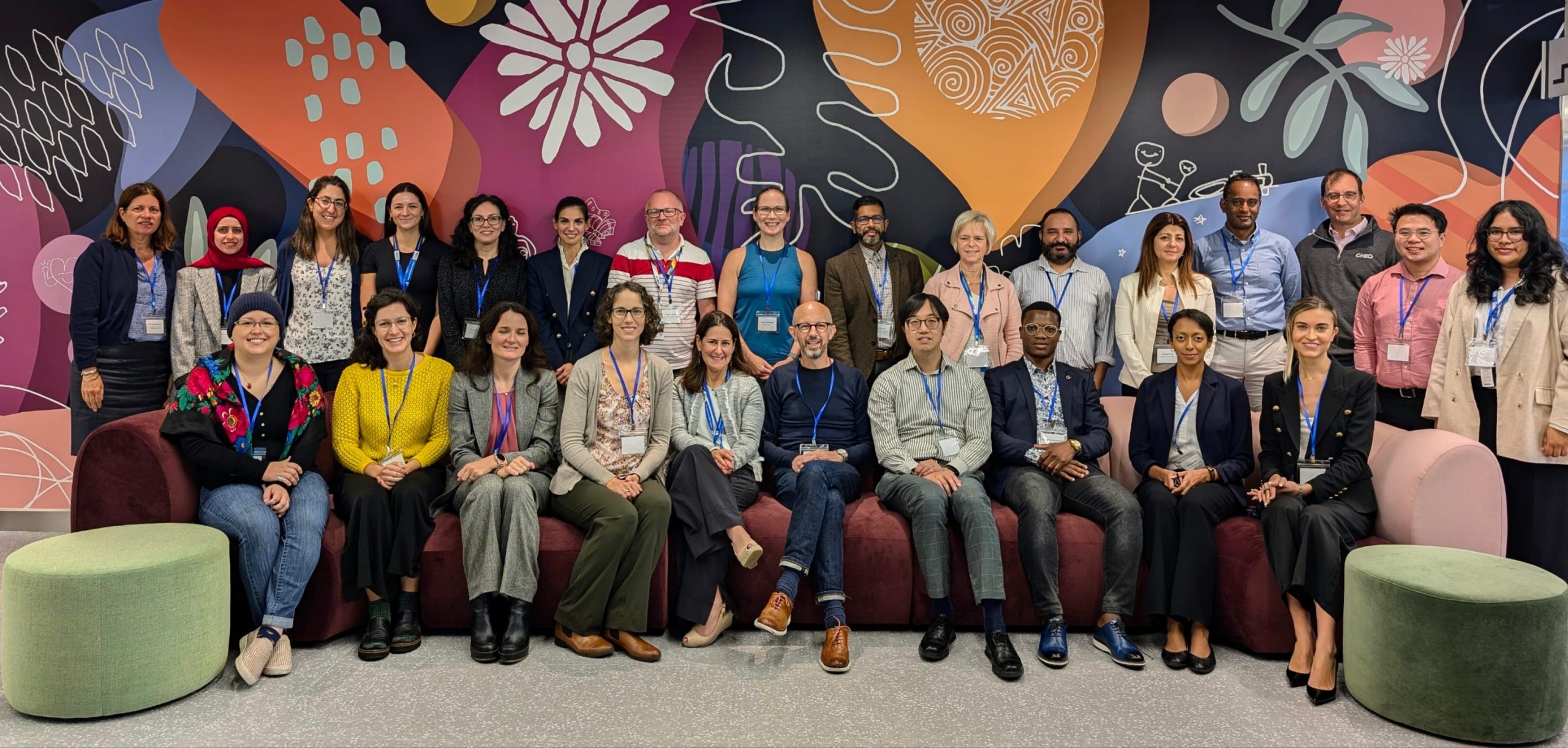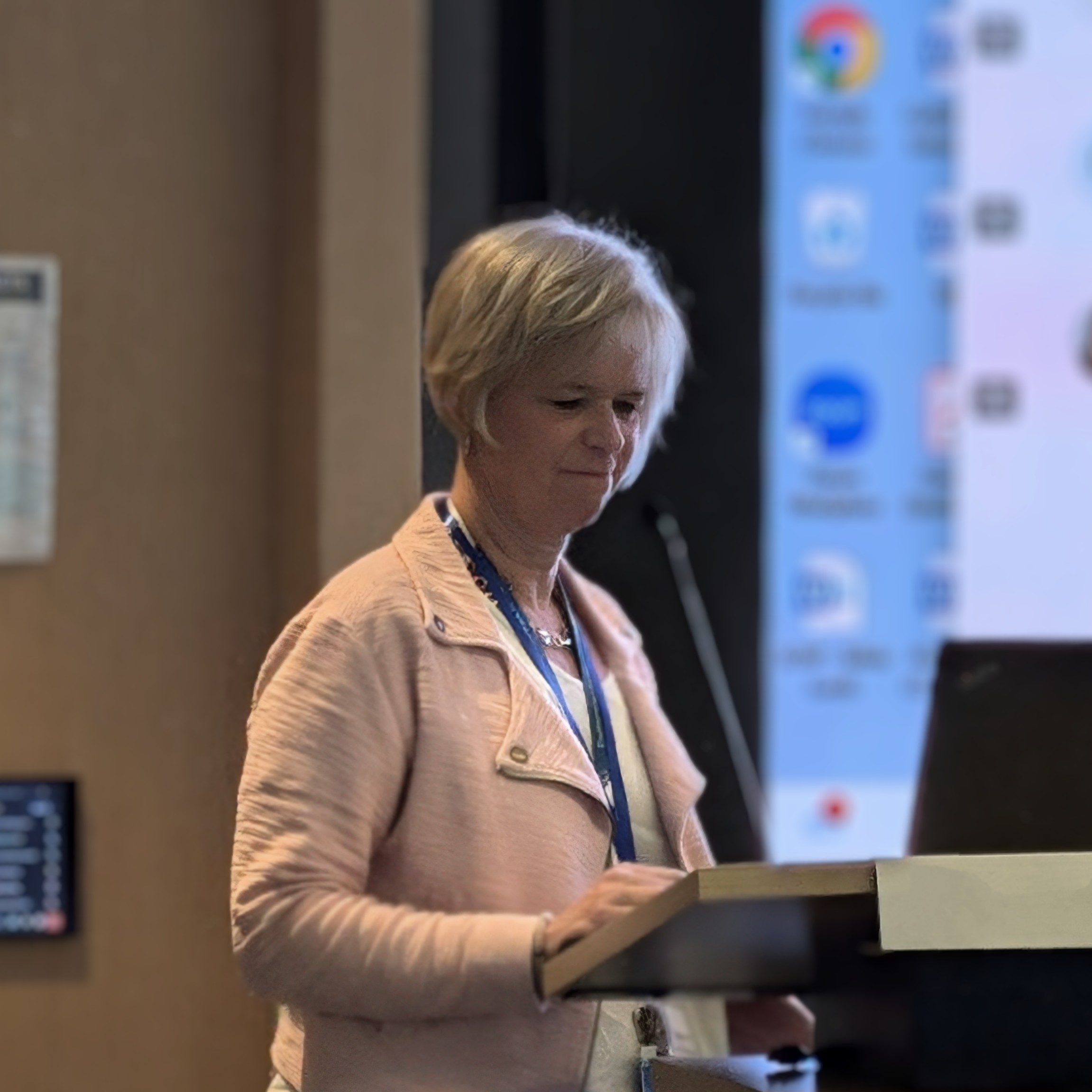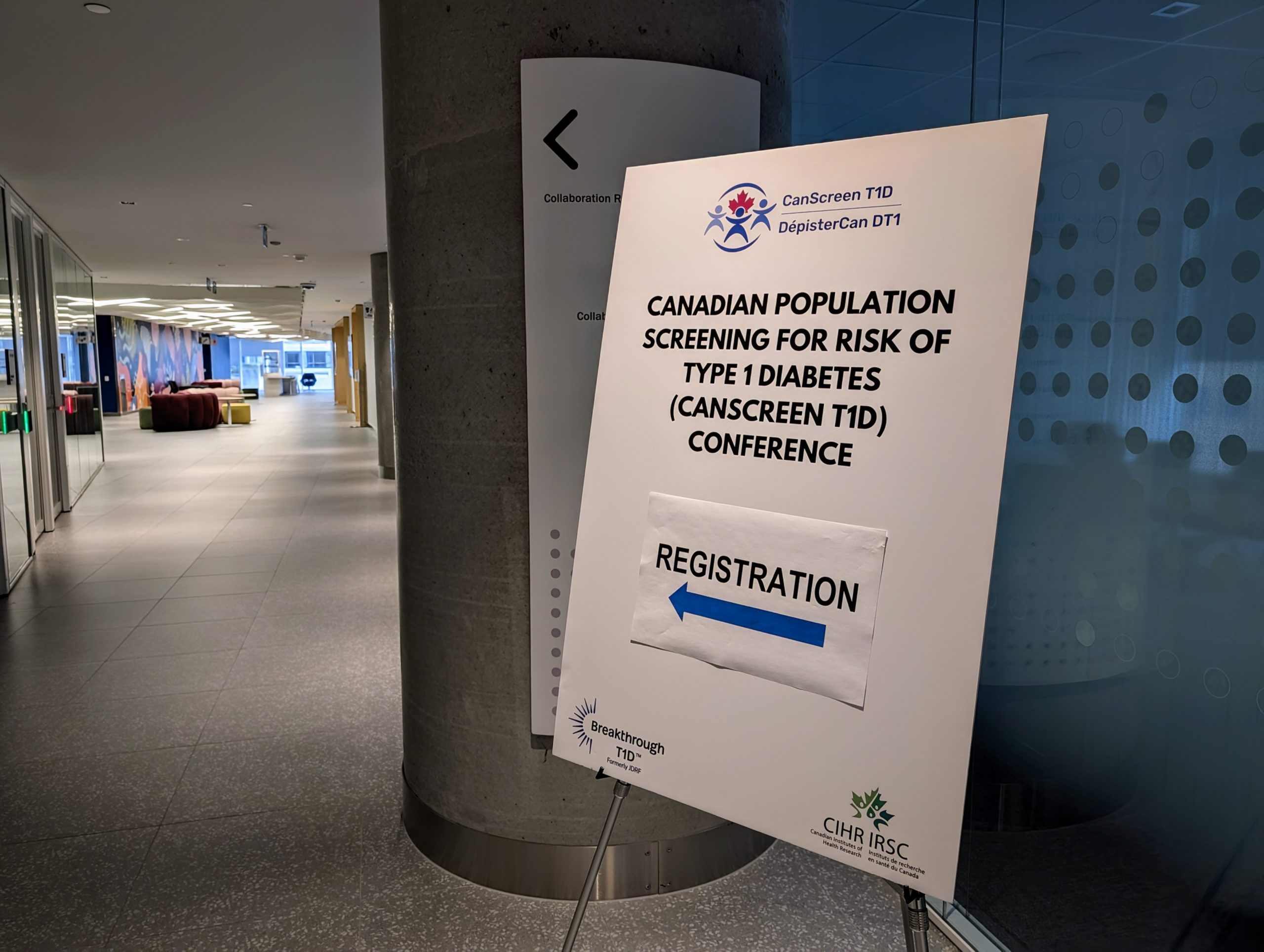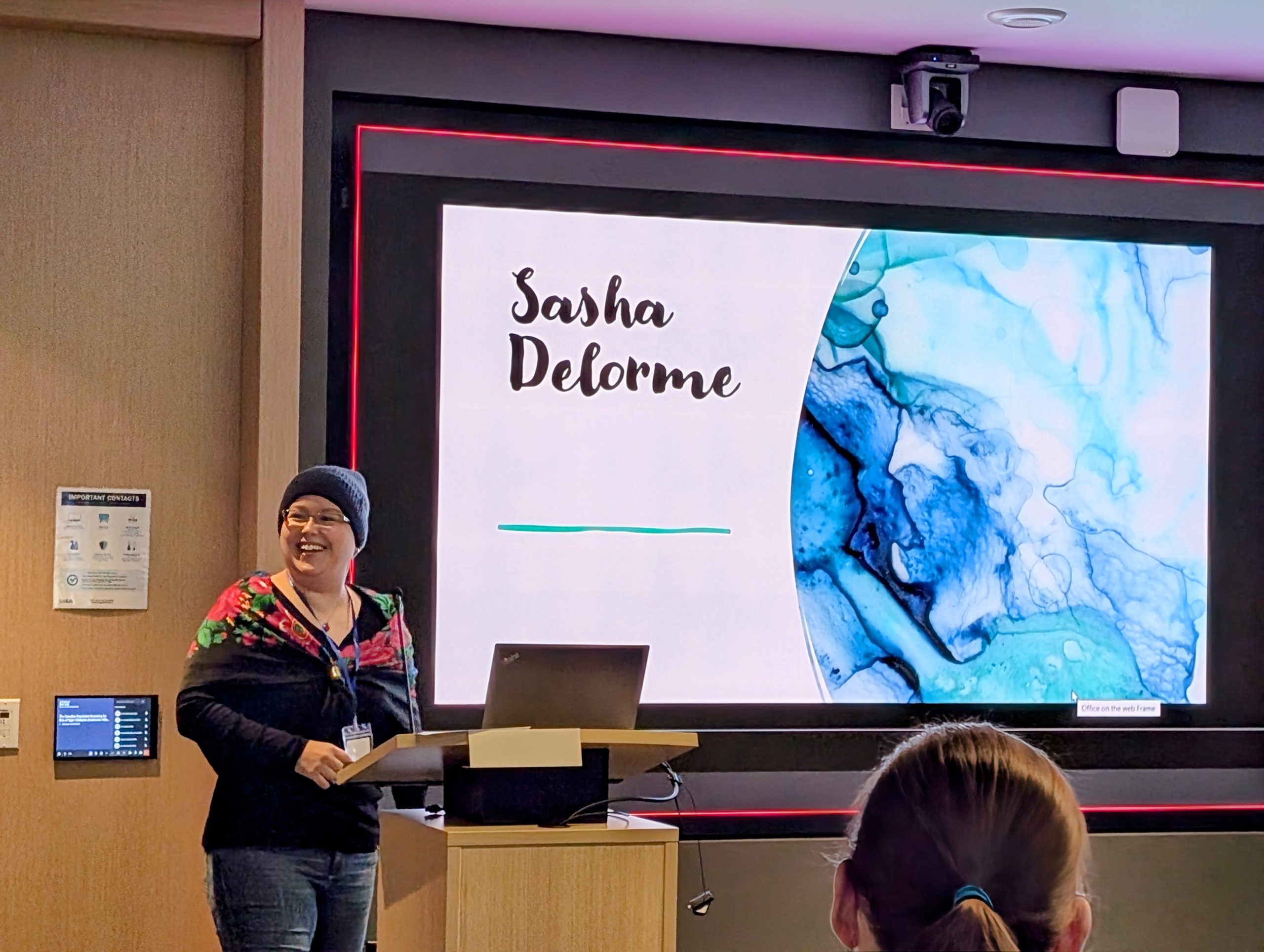The CanScreen T1D research consortium held its inaugural conference, welcoming team members and partners from across Canada and the USA.
September 25, 2024
On September 23, 2024, the Canadian Population Screening for Risk of Type 1 Diabetes (CanScreen T1D) research consortium proudly hosted its inaugural conference at The Hospital for Sick Children, bringing together researchers, healthcare practitioners, coordinating core members, and people living with type 1 diabetes (T1D) from across Canada and the United States of America. They were joined by representatives from the Juvenile Diabetes Research Foundation (JDRF) Canada and the Canadian Institutes of Health Research (CIHR). This exciting event fostered collaboration and innovation in the field of T1D, showcasing the collective efforts of those dedicated to advancing research and supporting children and their families impacted by the risk of T1D.

The CanScreen T1D inaugural conference attendees at The Hospital for Sick Children on September 23, 2024
T1D is an autoimmune disease that destroys insulin-producing beta cells, leading to a lifelong need for insulin therapy. While there are improved therapies to help manage T1D, many people face daily challenges in keeping their glucose levels in check and often feel the weight of constant management. Even though complications from diabetes have decreased, it remains a serious disease.
Unfortunately, many children and adults in Canada diagnosed with T1D experience diabetic ketoacidosis (DKA), a serious and frightening condition that can also be quite costly. At present, DKA occurs in about 25-36% of new T1D cases, and this number can go as high as 45%. Many of these challenging diagnosis experiences can be prevented if families had better warning signs that T1D was on the horizon.

“As we officially launch the consortium, I am excited about the opportunities that lie ahead. The innovative research and collaborative spirit that define our consortium hold the promise of significant changes in how the early phases of T1D are identified and managed in Canada. I look forward to the impactful contributions that each of you will make and to celebrating our future successes together.”
Dr. Diane Wherrett, CanScreen T1D Consortium Chair and Principal Investigator
Many countries are developing or testing pilot programs for general population screening, but such a program is still absent in Canada. This is where the CanScreen T1D research consortium comes in. We are working to create an accessible pilot screening program for newborns and children, helping to ensure that T1D screening becomes a reality in Canada.

Welcome poster board for the CanScreen T1D inaugural conference on September 23, 2024, at The Hospital for Sick Children
The inaugural conference captured the spirit of CanScreen T1D, showcasing its three key research themes: acceptability, feasibility, and follow-up and monitoring. Attendees also delved into global screening programs and emphasized the vital importance of the patient voice in shaping their work.
“When my son was diagnosed back in 2014, we had no idea what T1D was or what symptoms to watch for. With no family history of the condition, we had no one to guide us. The physician we were seeing at the time didn’t teach us what we needed to know. As a result, it was a long and difficult learning process to understand T1D and what was happening to our child. This challenge inspired me to become an advocate for the condition and gave me a voice as a caregiver.”
Sasha Delorme, Métis representative, Chairperson of Indigenous Patient Circle, Diabetes Action Canada, CanScreen T1D Indigenous Co-Lead

Sasha Delorme, Métis representative, Chairperson of Indigenous Patient Circle, Diabetes Action Canada, CanScreen T1D Indigenous Co-Lead
“Existing global screening programs tend to select and screen participants with a family history of T1D. However, if we focus our screening only on relatives, we miss about 90% of individuals who might develop T1D later on because they do not have a family member with the disease. Having a family member with T1D increases your risk by approximately 15 times. Therefore, if we want to make a stronger impact and prevent DKA, we must look beyond immediate family members. This is what we aim to implement and achieve through the CanScreen T1D research consortium.”
Dr. Kurt Griffin, Type 1 Diabetes TrialNet, International Advisory Panel (USA)
“The presentations today highlighted the benefits of broader engagement with patients and community members in our work. It is essential to incorporate patients’ lived experiences and the diverse knowledge they bring—such as self-management skills, navigation of the healthcare system, and community-based insights. While individual patient partners contribute valuable knowledge, community involvement is crucial for building trust in the populations where we aim to implement our solutions. This collective approach enables us to develop solutions that are appropriate, adaptable, and above all, build a foundation of trust.”
Dr. Audrey L’Espérance, Patient and Community Engagement Chair
“The CanScreen T1D research consortium is committed to developing, obtaining feedback on, and implementing culturally appropriate genetic counseling materials for individuals identified as high risk for developing T1D through Genetic Risk Score testing. We will also compare various educational materials used in international screening programs for individuals who test positive for autoantibodies associated with T1D, adapting one based on feedback from those with lived experience specifically for use in Canada.”
Dr. Ashish Marwaha, Executive Committee
To find out more about our research efforts, please head to the Our Research page.
The CanScreen T1D inaugural conference was held at The Hospital for Sick Children (SickKids) in Toronto, Ontario, Canada.
We would like to acknowledge the land on which SickKids operates. For thousands of years it has been the traditional land of the Huron-Wendat and Petun First Nations, the Seneca, and most recently, the Mississaugas of the Credit River. Today, Toronto is home to Indigenous Peoples from across Turtle Island. SickKids is committed to working toward new relationships that include First Nations, Inuit, and Métis peoples, and is grateful for the opportunity to share this land in caring for children and their families.
